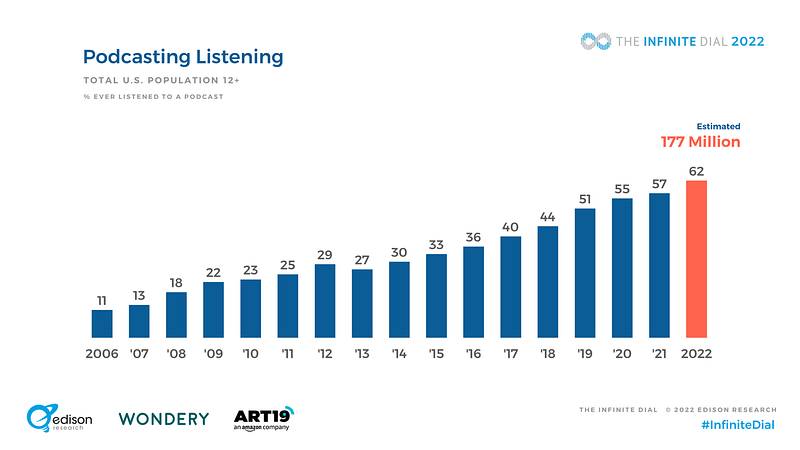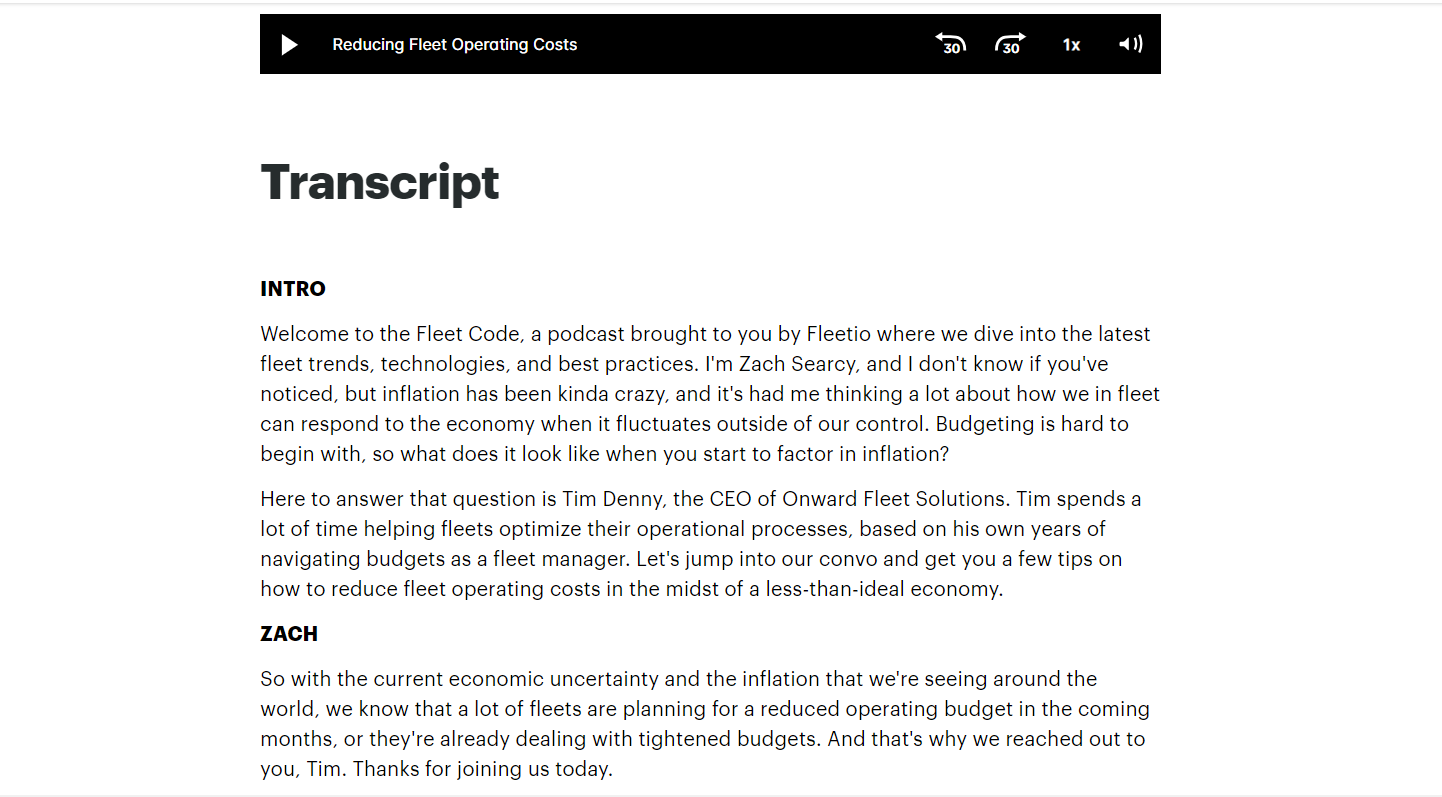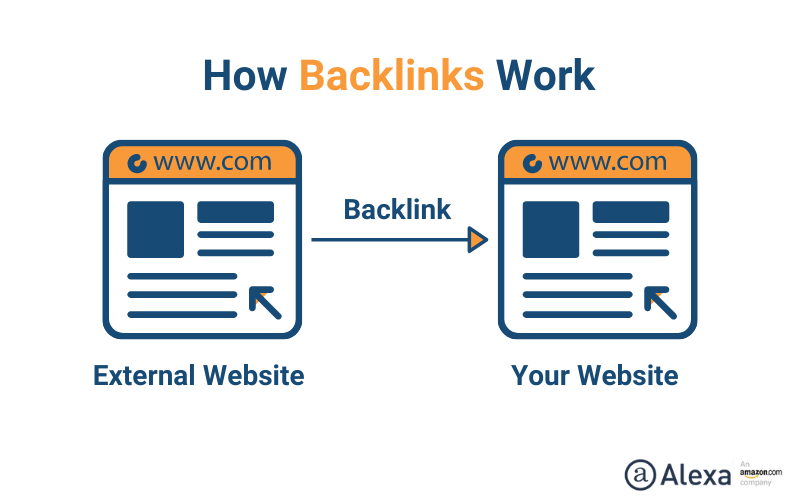How to Leverage Podcast SEO to Grow Your Audience and Brand Awareness
The beautiful thing about podcasting is that anyone can do it! It’s an open form of media that invites creativity, passion, and a drive to succeed.
The only major downside of podcasting is that anyone can do it.
There’s a ton of competition out there. In fact, as of January 2023, there were more than 3 million podcasts. This statistic includes amateur shows recorded on a phone, shows made by celebrities, and podcasts created by competitors in your industry.
With such steep competition, it seems nearly impossible for anyone to grow a show from the ground up.
But the good news is, there is a way you can push your podcast out into the world, ensuring that you reach the right audience when they need you most.
Enter: Podcast SEO.
Yes, the power of search engine optimization marketing can come in handy when you’re trying to launch a podcast. But how can you even launch an SEO campaign for a podcast? Is it different than SEO campaigns around special promotions or blog articles?
In today’s article, we’re walking you through the ins and outs of podcast SEO, providing actionable advice you can use to rise above the competition.
Ready to learn more?
Let’s begin!
What is podcast SEO?
As seen in the image below, podcasting is a consistently growing medium.

Podcast SEO is a search engine optimization plan to improve your podcast’s visibility on popular search engines like Google.
The good news is that it’s not very different from the standard SEO plans businesses roll out daily. The bad news is that those standard SEO plans aren’t easy to roll out. They require a ton of specialized knowledge of Google’s search algorithm.
And what makes this even more harrowing is that the algorithm constantly changes. What might have worked six months ago may need some adjustment in the present!
When trying to improve the search engine standing for your podcast, the core elements remain unchanged.
You’ll need to:
- Do a lot of keyword research
- Optimize your website for high-volume, low-competition terms your audience is searching for
- Generate links both internally and externally
- Utilize off-page optimization, including metadata and alt text on images
- Take technical SEO steps to make sure the site is user-friendly
But promoting a podcast can be a lot different than promoting a product or service. It’s a unique medium that requires some outside-of-the-box thinking.
Let’s jump into some actionable ways you can improve your podcast SEO to grow your audience.
How to use podcast SEO to grow your audience
In the following sections, we’ll provide podcast-specific information on how you can improve your show’s standing on Google’s SERP. Following these steps should help you see steady improvement over time.
Let’s take a look:
Create a website for your show
Too many podcast hosts believe they don’t need a website. Once they record a show, they simply upload it to a podcast platform like Podbean or Podomatic. From there, the platform will upload it to podcast directories, so they can sit back and relax while the downloads come in.
Unfortunately, that’s not how it works at all.
If you want to guarantee that the people who need the information your show presents can find it, you’ll need to create a website around it. Choose a top-notch front-end web development company for maximum impact on your website’s success and supercharge your podcast’s SEO.

Podcast websites serve key purposes: They create a central online home for your show. It’s where listeners can read up on the show itself, catch your backlog of podcast episodes, and learn more about the hosts. It’s also where your podcast SEO efforts will live.
Every page of your podcast website is an opportunity for optimization. You’ll have to optimize your homepage and each episode’s page for search.
Of course, your homepage will see many generalized key terms that revolve around your show’s overall theme or function, too.
For instance, if you’re running a gardening podcast, you might try to compete for terms like:
- Gardening show
- Gardening tips
- Gardening podcast
- Gardening tips podcast
- And so on
But the episode pages allow you to dive deeper into your niche. For example, if you have an episode about fertilizers, you could research fertilizer gardening key terms that wouldn’t fit on your homepage and include them on your episode pages instead.
For instance, if you have an episode on indoor succulents, you might consider longtail keywords like:
- Best indoor succulents for new gardeners
- How to grow indoor succulents easily
- Growing indoor succulents without a lot of natural light
- And so on
*Note: For every website page, you should have a list of keywords for which the page needs to rank. This tactic will help you optimize your content and develop ideas for future episodes. Just make sure you’re also focused on technical podcast SEO as well. For that, you’ll need to make sure your pages are loading quickly, you’ve removed duplicate content, and you have a sitemap in place for crawler bots.
Reach out to a technical SEO expert for more support if needed.
Optimize episode descriptions
Every podcast episode needs a description. But many hosts throw something together quickly and toss it up like an afterthought.
When developing episode descriptions, it’s important to keep your keywords and search rankings top of mind. Include your target keywords in both the descriptions and titles of each episode. Take your time with the content and create something to draw in your intended podcast listeners and Google search bots.
On your individual episode pages, descriptions can be a massive opportunity — think of them as prime real estate for SEO optimization. Consider your podcast audience and what they’d be searching for when looking for content.
*Pro-Tip: It’s a good idea to come up with optimized descriptions before ever sitting down to record an episode. This can help you keep your content on track so you can develop targeted podcast episodes that speak to the specific needs of your listeners.
Transcribe episodes
Transcription is another important element of the podcast SEO process. You can use services that’ll automatically listen to your episode’s content and create a transcript to post on your website.
This step represents another opportunity for content optimization that’ll appeal to Google’s search bots. Of course, since it’s a direct transcript of what you’ve said on the podcast, you’ll need to keep your optimization in mind when recording.
Give yourself a list of keywords to drop into casual conversation while recording the podcast episode. Mention them a few times to ensure the transcription software picks them up accurately. Then, go through and edit your transcript, fixing any mistakes.
Remember, Google won’t listen to your episode to rank you based on audio content. It only understands the written text.
That’s why these podcast transcripts are so crucial.
You can even translate transcripts into different languages using text-to-speech software. This step opens your content up to diverse audiences, significantly boosting your podcast’s SEO and expanding your audience reach.
You can also use a text-to-speech platform to create an audio version of your show in the potential listener’s preferred language to further expand your reach.

Plan episodes with keywords in mind
When hosting a podcast, coming up with ideas for new episodes can be one of the most challenging parts of the creative process. You need to tailor your content to what your listeners want to hear while keeping everything fresh and relevant.
But one more factor to keep in mind when developing podcast episode ideas is relevant keywords.
Look at what’s trending on the SERPs you want to dominate. What are your competitors talking about? What kind of volume are these pages getting?
For example, if you host a sports podcast and know that football season is coming up, conduct keyword research on the subject. Figure out what your podcast audience is searching for regarding football, and line up the month’s episodes to coincide with these search opportunities.
Write dedicated blog posts around podcast episodes
Having a blog post for each episode is a great way to leverage SEO for your podcast and grow your audience and brand awareness.
Fleetio follows this strategy superbly by creating a dedicated blog post for each of its podcast episodes.


For example, its podcast episode on reducing fleet operating costs has a dedicated blog post with an introduction.
It then goes into a transcript of the episode, links to relevant resources, and timestamps for each topic covered on the show. By optimizing these posts for specific keywords like “ELD trucking device” or “fleet management software,” Fleetio attracts a targeted audience interested in these topics.
This tactic not only makes sure the episodes are searchable on Google, but it also provides a way to promote them on LinkedIn, Twitter, Facebook, and other the multiple social media channels they manage.
*Pro-Tip: Your episode’s blog post should introduce the topic and give some background information before starting the transcript. Then, include the transcript and offer some additional resources, such as links to other related episodes you’ve posted.
Make your pages accessible
In addition to being a well-known platform for podcasts, WordPress is an excellent tool for boosting website SEO.
Enabling accessibility for your podcast will enable more individuals to engage with your content. Prioritizing diversity will increase your brand awareness because many websites still don’t have complete accessibility options.
Make sure that all supporting imagery has descriptive alt text for the benefit of those using screen readers for better customer experience. Use contrasting colors to bring the user’s attention to key calls to action (CTAs) and important links.
Use guests to establish backlinks
Linking is one of the most critical elements of SEO. Your podcast website needs a catalog of high-quality and relevant backlinks from websites Google holds in good standing.

One of the easiest ways to establish these backlinks is to have guests on your show who already have an established authority in your niche. When you have a guest on your show, include links to their pages on the episode page. Then, ask them to share the episode on their websites, social media profiles, and more.
Each time a guest shares the episode, it counts as a backlink.
Additionally, you can generate backlinks by appearing on other podcasts as a guest. It’s the same concept but in reverse. By appearing on the show, the host will include links to your show and content in their descriptions and episode pages.
Create internal links between episodes
Your podcast website needs a series of internal links between pages. This creates pathways for Google’s search crawlers to take when indexing your content — the easier you make that process on Google, the better it receives your content.
Internal linking opportunities will be easy to spot. If you reference a keyword or topic covered in another episode of the show, create a link in your description. You can also place links in the transcript and blog post that connect to the episode’s page.
Keep internal linking opportunities in mind whenever you post a new episode. You should also go back to old episodes and look for places where you can add links to any newer content.
Wrap up
Podcasting is a growing and readily accessible medium. It can be a great way to establish trust and authority with your audience, forging parasocial relationships with them along the way.
But to reach those heights, you need to make sure that people can find your podcast easily.
That’s where podcast SEO comes into play.
Following the advice in today’s article can help you create a winning podcast SEO strategy that’ll take you to the top of your industry.
Just remember that all SEO takes time and the job isn’t over even after you’ve put that time in.
Consistently producing and optimizing podcast content is essential to steadily growing your audience and increasing brand awareness.
That’s it for now, podcasters.
Here’s to your success!
PS: Need help optimizing your podcast? See how our award-winning SEO agency can double your organic traffic in 180 days! Book a call to learn more.








